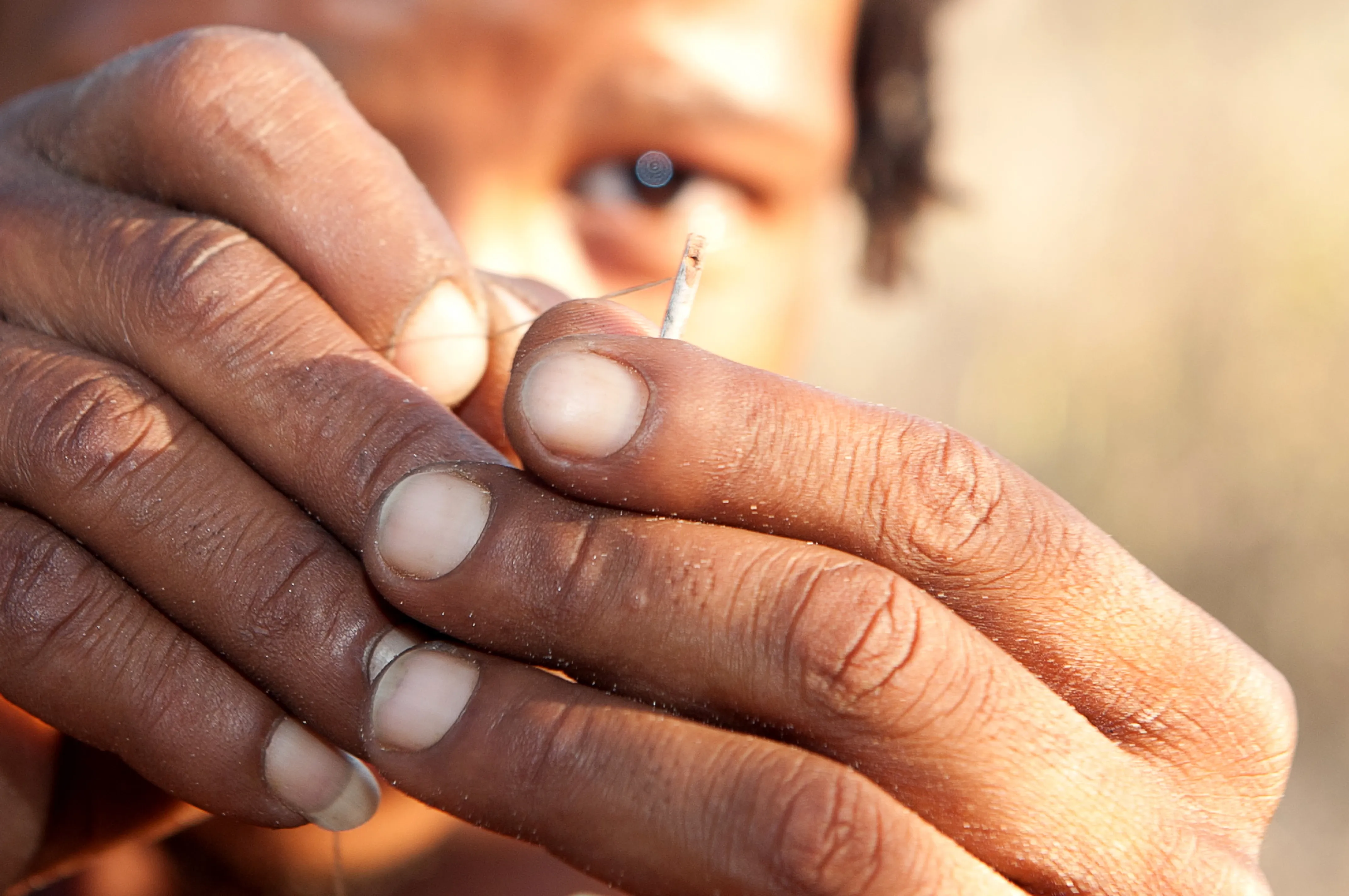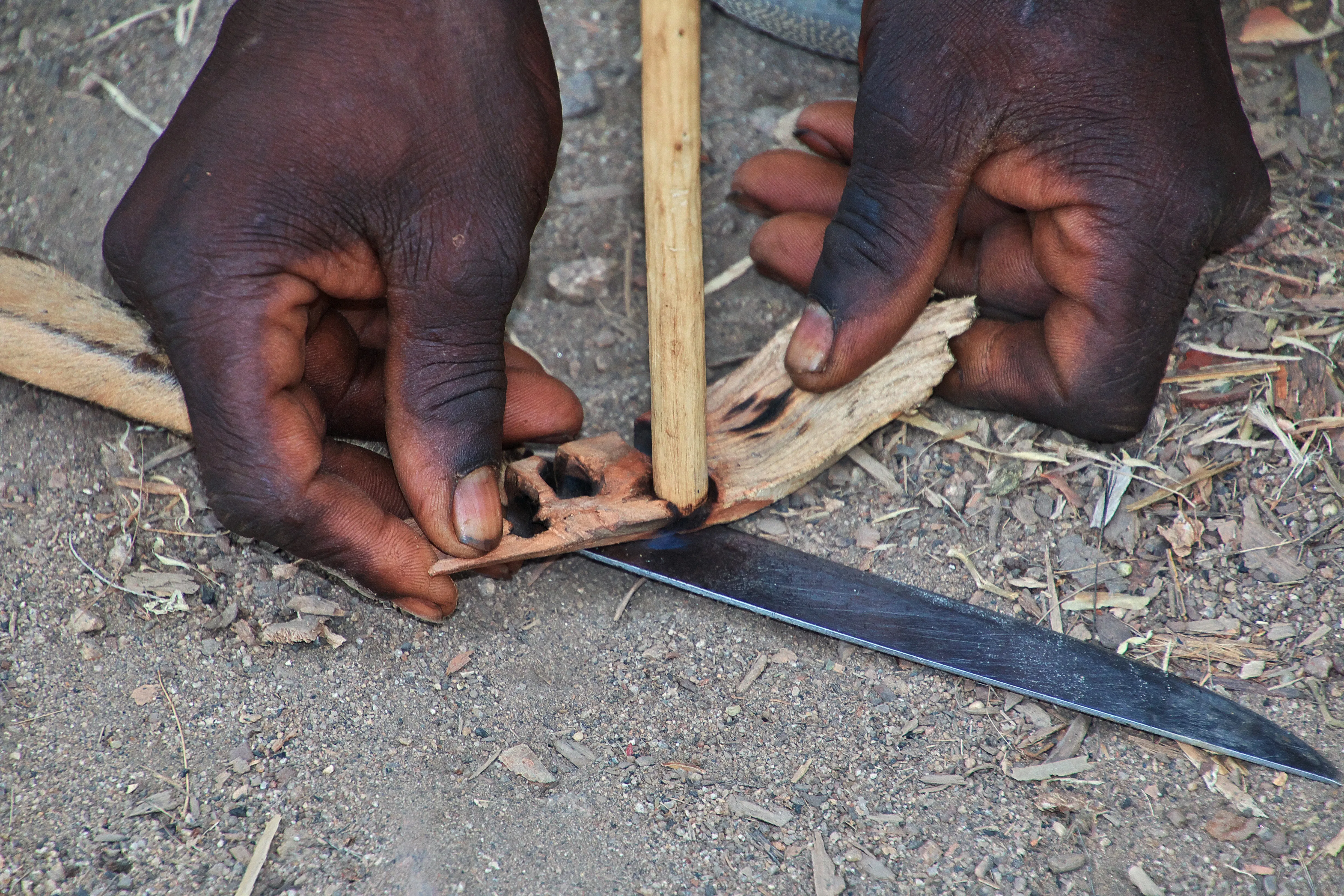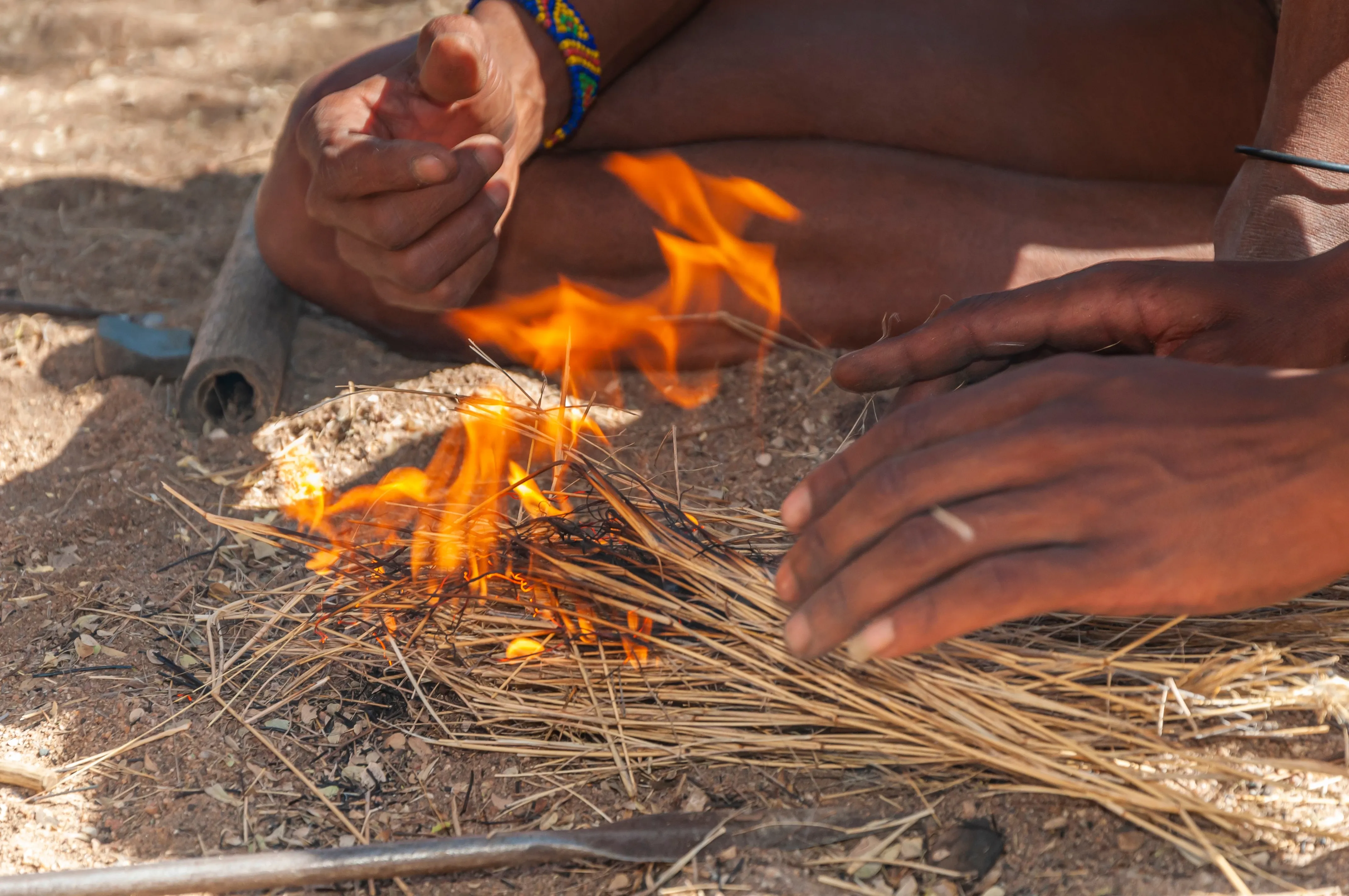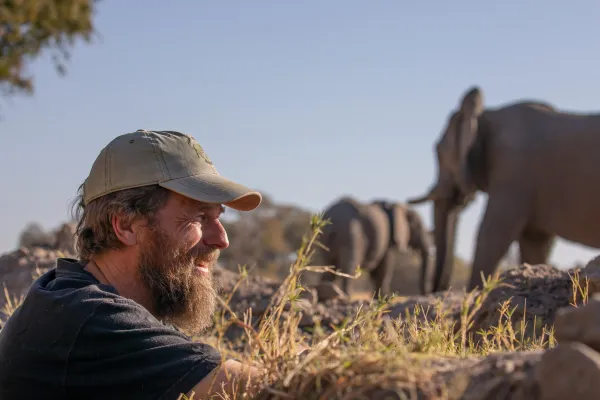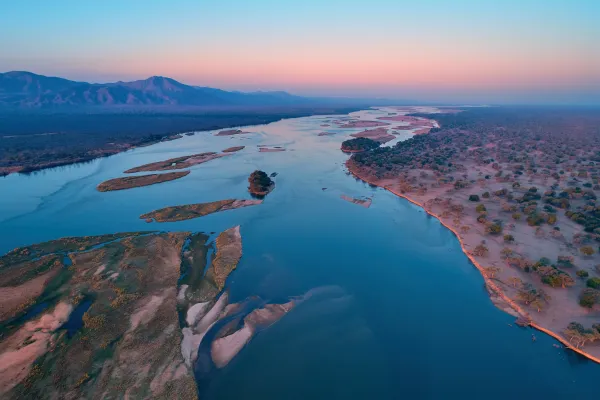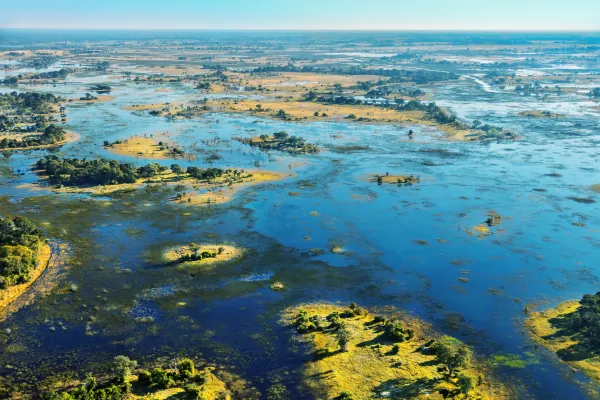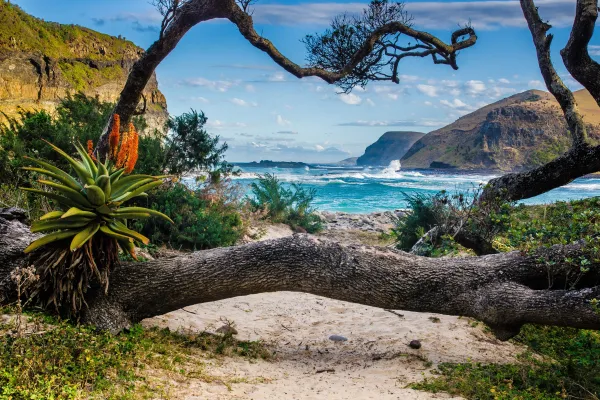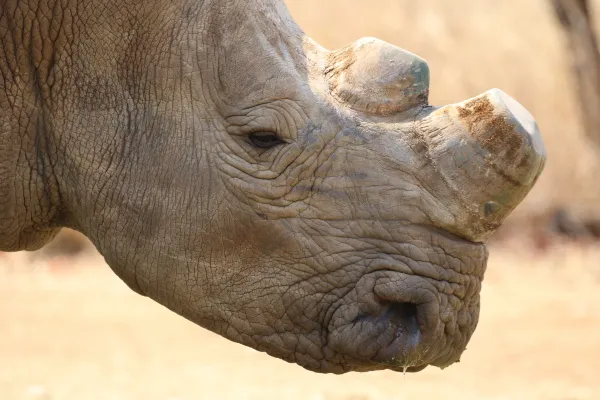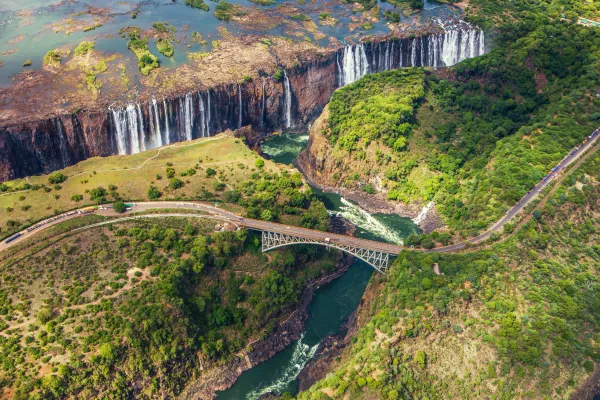A voice from the wilderness: A man named Cobra
Some time ago, I visited a place called Makgadikgadi in Botswana. The remnants of a massive super-lake, the largest ever know on earth, dominated now by a system of huge desolate salt pans.
I had the incredible privilege of walking with a legendary Bushman elder.
Neither he nor any others know how old he is. He was named Cobra and he belongs to the Sowakwe – the ‘People of the salt.’
The word ‘Makgadikgadi’ means ‘vast lifeless place’ in the Sowakwe dialect, but for Cobra it is anything but that. It is a literal bounty.
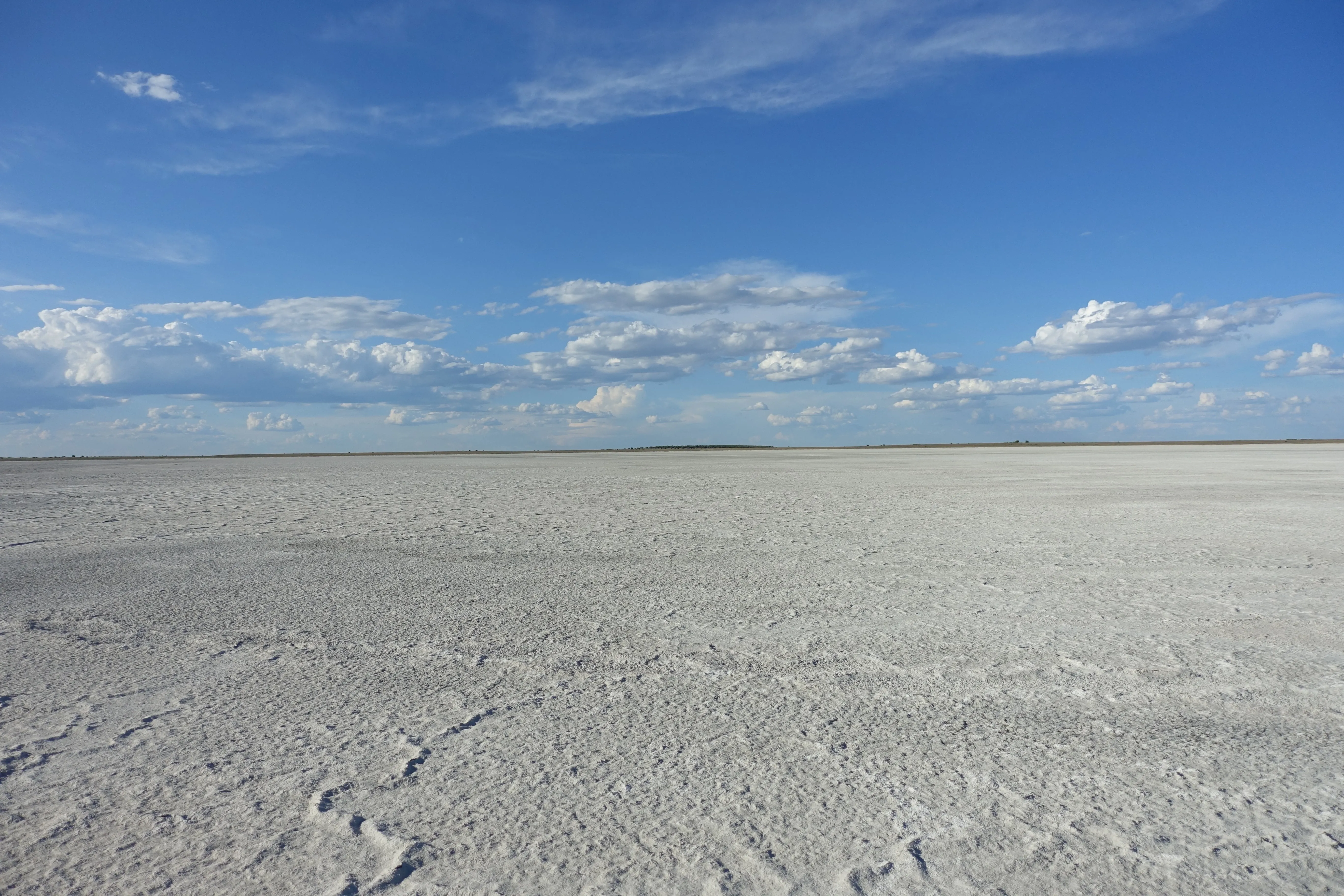
An ocean of wisdom and knowledge
The Bushman society of the Kalahari are recognised as the oldest known culture on earth, and Cobra’s ancestors have been living off the land here for over 40 000 years.
And when walking with this man, it seems as if Cobra is the vessel which holds the ancient and original wisdom and knowledge of countless generations before him.
We caught scorpions, studied animal tracks and made fire with rubbing sticks. There is something incredibly primitive about watching a grass pile combust before your very eyes, something humans have been doing since the dawn of consciousness.
Bushcraft and survival skills
We also dug up a succulent tuber from a plant know as ‘Bi’. Once the fibres are peeled and stripped, Cobra showed me how to squash the pulp in my fist and allow the moisture to run down my thumb into my mouth. It tasted bitter, but in such a desolate place, it was liquid gold and could keep you alive.
We visited a 5000-year-old baobab tree inscribed by David Livingstone during his expedition through the region in 1851. Historically insignificant in terms of what I was learning from Cobra of course.
The Makgadikgadi is an enigma. An acquired taste. A place to return. Perhaps my greatest lesson from Cobra, however, was the care he took with the ‘Bi’ tuber. Mindful not to damage the stem and leaves, or peel off too much pulp, he delicately re-aligned the tuber back into the hole, and tenderly re-covered it.
He knew, that perhaps one day, he, or some other Sowakwe travellers, would need to rely on the tuber again. I was profoundly touched by his gestures. Something stirred within.
And watching the gentle humility of Cobra, and his gestures of empathy and care the ‘Bi’ tuber, I again realised that there was more to the art of being sustainable and the values associated with living close to the land. Like empathy, and a respect for a meaningful higher influence in our lives.
“What’s in it for us?”
Perhaps this is the essence of restorative leadership. A paradigm shift in thought from ‘what’s in it for me’ to ‘what’s in it for us.’ I believe that within the context of a bigger picture, we may first need to be sustainable within, in order to be sustainable without.
Our relationships with others, therefore, become long-lasting. Like Cobra and the Bi tuber we only take what we need from one another, preserving the rest.
And he looked so content! It was an incredibly inspiring experience walking with this humble, unassuming and wise old man. I learned so much from him in the ancient landscapes of Makgadikgadi, and return often. It’s a meaningful encounter not to miss.
Let's safari!
Alan McSmith
Sign up for the newsletter
By clicking on “Subscribe now” I will subscribe to the Conscious Explorer newsletter with all the information about mindful travel. Information on the success measurement included in the consent, the use of the shipping service provider MailChimp, logging of the registration and your rights of revocation can be found in our privacy policy.

